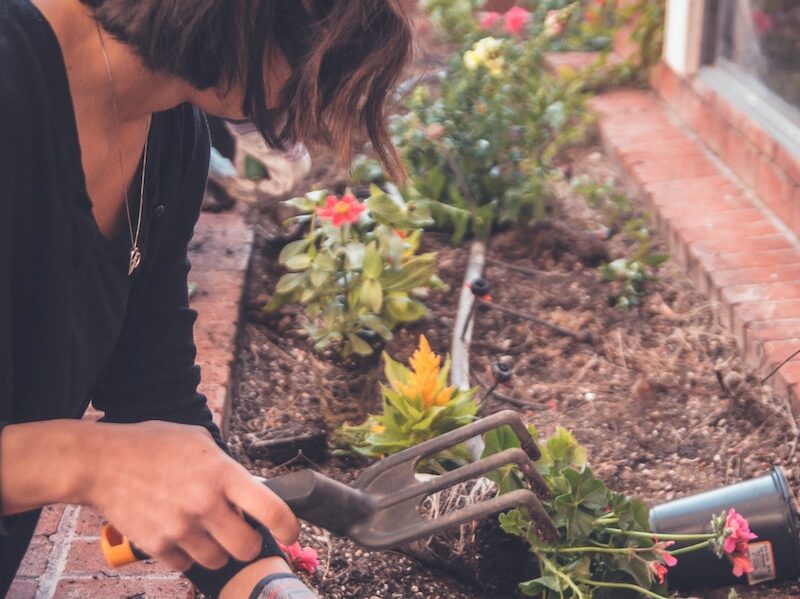Grow Wellness with Gardening: Nurture Your Mind, Body, and Soul on Thinking Thursday.
How Gardening Can Help Reduce Stress and Improve Mental Health
Gardening is a great way to reduce stress and improve mental health. It can be a calming and therapeutic activity that helps to clear the mind and reduce anxiety. Gardening can also provide a sense of accomplishment and purpose, which can help to boost self-esteem and confidence.
Gardening can be a great way to get some exercise and fresh air. It can help to reduce stress hormones and increase endorphins, which can help to improve mood and reduce feelings of depression. Gardening can also be a great way to connect with nature, which can help to reduce stress and improve overall well-being.
Gardening can also be a great way to practice mindfulness. It can help to focus the mind on the present moment and can help to reduce rumination and worry. It can also be a great way to practice gratitude, as it can help to appreciate the beauty of nature and the small things in life.
Gardening can also be a great way to connect with others. It can be a great way to socialize and meet new people, which can help to reduce feelings of loneliness and isolation. It can also be a great way to spend quality time with family and friends, which can help to improve relationships and overall well-being.
Overall, gardening can be a great way to reduce stress and improve mental health. It can provide a sense of accomplishment, help to connect with nature, practice mindfulness, and connect with others. So, if you’re looking for a way to reduce stress and improve your mental health, why not give gardening a try?
The Benefits of Growing Your Own Food: A Guide to Sustainable Gardening
Growing your own food is a great way to become more sustainable and reduce your environmental impact. Not only does it provide you with fresh, healthy produce, but it also helps you save money and reduce your reliance on the industrial food system. Here’s a guide to the benefits of growing your own food and how to get started.
Benefits of Growing Your Own Food
1. Freshness: Growing your own food means you can enjoy the freshest produce possible. You can pick your fruits and vegetables at the peak of ripeness, ensuring maximum flavor and nutrition.
2. Health: Growing your own food means you can control what goes into your food. You can choose organic, non-GMO, and pesticide-free options, ensuring that you’re eating the healthiest food possible.
3. Cost Savings: Growing your own food can save you money in the long run. You’ll no longer have to pay for expensive organic produce at the grocery store.
4. Environmental Impact: Growing your own food is a great way to reduce your environmental impact. You’ll be reducing your reliance on the industrial food system, which is responsible for a large portion of global greenhouse gas emissions.
Getting Started
1. Choose a Location: The first step is to choose a location for your garden. You’ll want to pick a spot that gets plenty of sunlight and has good drainage.
2. Prepare the Soil: Once you’ve chosen a location, you’ll need to prepare the soil. This involves adding organic matter, such as compost, to the soil to improve its fertility.
3. Plant Your Seeds: Once the soil is ready, you can start planting your seeds. Make sure to follow the instructions on the seed packet for the best results.
4. Water and Fertilize: Once your plants are in the ground, you’ll need to water and fertilize them regularly. This will help ensure that they get the nutrients they need to grow.
Growing your own food is a great way to become more sustainable and reduce your environmental impact. With a little bit of effort, you can enjoy fresh, healthy produce and save money in the process.
Exploring the Therapeutic Benefits of Gardening: A Look at the Science Behind the Practice
Gardening has long been a popular pastime, but it may also have therapeutic benefits. Recent research has suggested that gardening can help reduce stress, improve mental health, and even boost physical health. In this article, we'll take a look at the science behind the therapeutic benefits of gardening.
First, let's consider the mental health benefits of gardening. Studies have found that gardening can reduce stress and anxiety, improve mood, and even help with depression. This is likely due to the fact that gardening can be a calming and meditative activity. It can also provide a sense of accomplishment and purpose, which can be beneficial for mental health.
Next, let's look at the physical health benefits of gardening. Studies have found that gardening can help improve physical fitness, reduce the risk of heart disease, and even help with weight loss. This is likely due to the fact that gardening requires physical activity, which can help improve overall health. Additionally, gardening can provide exposure to sunlight, which can help boost vitamin D levels and improve bone health.
Finally, let's consider the social benefits of gardening. Studies have found that gardening can help improve social connections and relationships. This is likely due to the fact that gardening can be a shared activity, which can help foster a sense of community and connection. Additionally, gardening can provide an opportunity to learn new skills and knowledge, which can be beneficial for social development.
Overall, the research suggests that gardening can have a range of therapeutic benefits. From reducing stress and improving mental health to boosting physical health and fostering social connections, gardening can be a great way to improve overall well-being. So, if you're looking for a way to relax and improve your health, why not give gardening a try?








